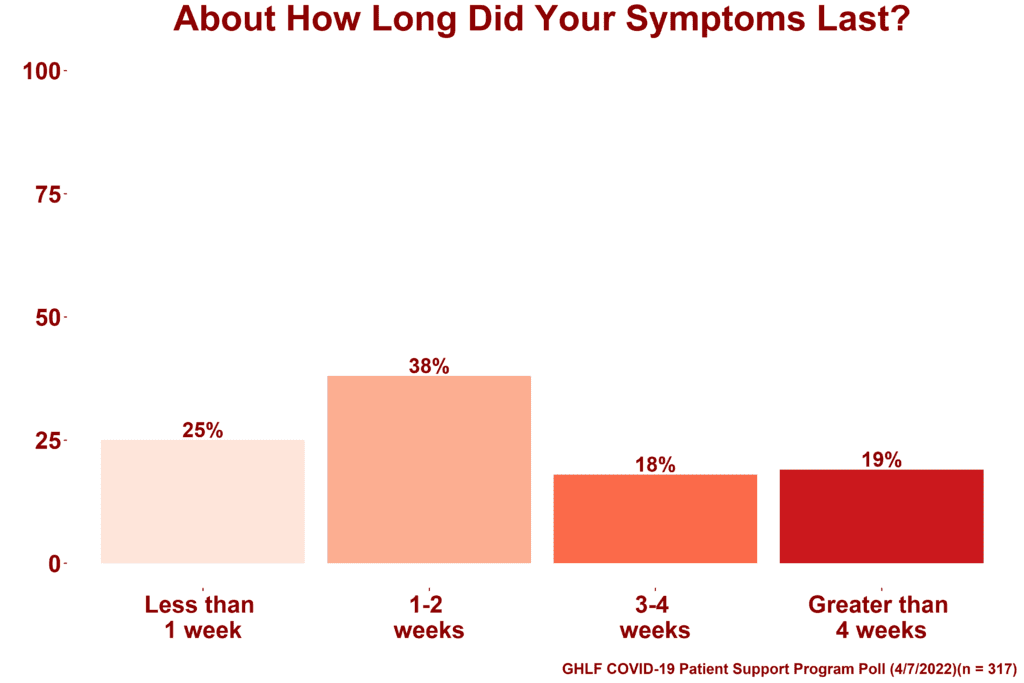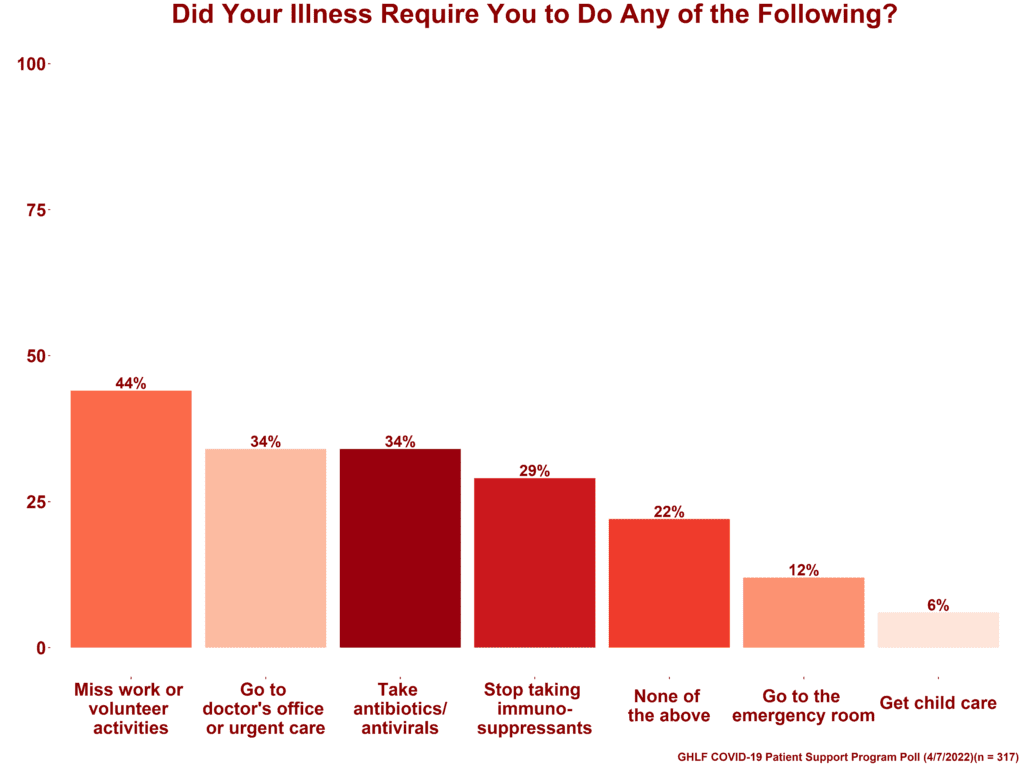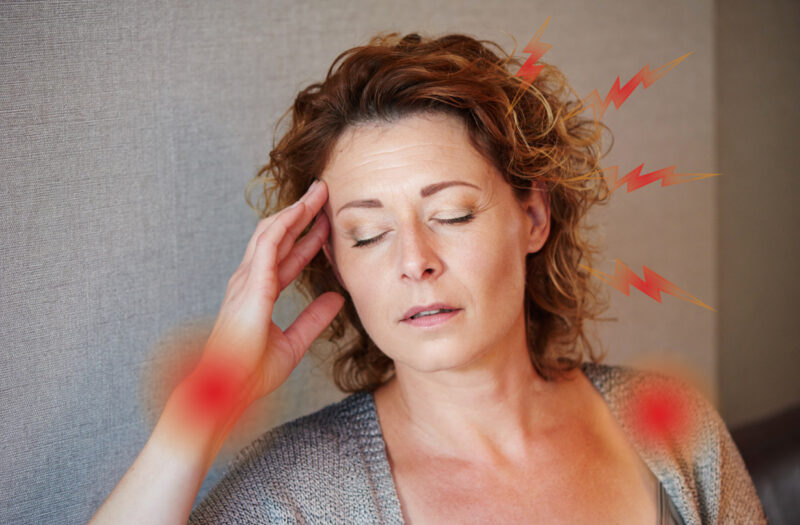Learn more about our FREE COVID-19 Patient Support Program for chronic illness patients and their loved ones.
We’re two years into the COVID-19 pandemic and there are still many unknowns, especially for members of our community who live with underlying conditions or take immunosuppressant medications. For those in our community who have avoided catching COVID so far, a big unknown is “what will it be like if I get it?”
Despite best efforts to stay protected, including getting fully vaccinated and boosted, it is still common to develop and spread COVID-19, especially as new variants emerge. We know many in our community who are immunocompromised or live with an underlying condition have concerns about getting infected with COVID, or are wondering if those infected had a similar experience.
We’ve published stories from patient advocates Angie Ebba and Tinu Abayomi-Paul about their experiences being immunocompromised and getting COVID. After sharing these stories and seeing the response from our community, we sought to have a greater understanding of our community’s experience with contracting COVID.
In our latest poll, the Global Healthy Living Foundation’s COVID-19 Patient Support Program aimed to gain insight into how many of our community members have experienced breakthrough cases, and what their experience was like.
Of the 1,824 respondents, 87 percent reported being vaccinated against COVID-19 (including having received all additional vaccine doses that are available); 78 percent reported they have not tested positive, or had symptoms of COVID-19, since being vaccinated.
- 20% said yes
- 2% said I’m not sure
Here are some other key learning and insights from the poll.
The most common symptoms for immunocompromised people who got sick with COVID-19 were fatigue, headache, and sinus congestion.
As part of the poll, participants who said yes to having COVID-19 were asked about what symptoms they had while being sick and were able to select all that apply. The most common symptoms reported were new/worsened fatigue (77%), headache (72%), and runny nose/sinus congestion (68%).
Other symptoms reported were:
- 61% cough
- 54% sore throat
- 52% fever
- 52% chills
- 49% muscle aches
- 36% shortness of breath
- 36% new/worsened joint pain
- 30% new/worsened body pain
- 30% flare of my chronic (autoimmune) condition
- 26% loss of smell or taste
- 26% trouble sleeping
- 22% fast-beating heart
- 22% diarrhea
- 15% nausea/vomiting
- 1.6% none of the above
And when it came to fever, most (56%) had a low fever or did not know (19%) what their highest fever was. Only 25% said they had a fever of 100.4 F / 38.0 C or above.
Being vaccinated and boosted has brought peace of mind
From the free response section of the poll, it’s clear that our community is grateful for the COVID-19 vaccine and attribute the mild infection to the vaccine’s protection.
- “Glad I didn’t have to find out what it was like to get this before being vaccinated. It would have been rough.”
- “Glad I was vaccinated. Could have been much worse if I hadn’t been.”
- “Grateful for the vaccine since I’m immunocompromised and my COVID infection was so mild.”
- “Had 3rd shot less than a month before contracting COVID — seemed to make a big difference.”
- “I feel the vaccinations and booster contributed to my having such a mild case of COVID-19.”
- “I had it far easier than my mom did, who caught it before the vaccine was available.”
A few participants reported that symptoms were less severe than expected:
- “I will say it was not as serious as I had feared it would be. Although it did take me twice the time to recover than others. The fatigue was pretty overwhelming, it lasted two weeks, and then it finally lifted. And ‘knock on wood;’ no symptoms of long COVID.”
- “I had been very concerned about how my body might respond if I were to contract COVID 19. It turned out to be a surprisingly mild case and I felt confident that the vaccine regimen is effective even though I take immune suppressing medications.”

There was no clear set of time for how long symptoms last for immunocompromised people who got COVID
Unfortunately, our poll revealed that the length of symptoms varied for those who got it.
- 25% said less than one week
- 38% said one to two weeks
- 18% said three to four weeks
- 19% said greater than four weeks

Almost half of immunocompromised people who got COVID had to miss work or volunteer activities
We also asked what their illness required them to do, if any, of the following:
- 44% said miss work or volunteer activities
- 34% said go to a doctor’s office or urgent care
- 34% said take antibiotics/antiviral
- 29% said stop taking your immunosuppressant medicine(s)
- 22% said none of the above
- 12% said go to the emergency room
- 6% said get someone to watch your children
Immunocompromised people are grateful for antiviral and monoclonal antibody treatments
- “I am thankful for the vaccine, I’m sure had I not been vaccinated, my symptoms would have been much worse. I am also thankful I had access to antiviral pills.”
- “I have tested positive 2 times after knowing I was exposed. Thankfully I did not get sick either time and only had slight symptoms like a sore throat. I attribute it to the vaccine protecting me. I had online doctor’s appointments to qualify me for monoclonal antibodies both times.”
- “I knew I was at increased risk even though vaccinated because I take Rituxan, and labs showed I had zero antibodies for COVID. I was lucky, and was able to get monoclonal antibody treatment on day five. My symptoms improved rapidly and completely after that. Thank you for letting me share my experience.”
Get Free Coronavirus Support for Chronic Illness Patients
Join the Global Healthy Living Foundation’s free COVID-19 Support Program for chronic illness patients and their families. We will be providing updated information, community support, and other resources tailored specifically to your health and safety.






